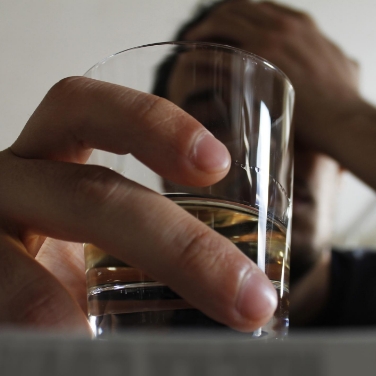
Understanding Alcohol Use Disorder (AUD)
According to the National Institute on Alcohol Abuse and Alcoholism, alcohol-related problems—which result from drinking too much, too fast, or too often—are among the most significant public health issues in the United States.
Many people struggle with controlling their drinking at some time in their lives. More than 14 million adults ages 18 and older have alcohol use disorder (AUD), and 1 in 10 children live in a home with a parent who has a drinking problem.

Does Treatment Work?
The good news is that no matter how severe the problem may seem, most people with AUD can benefit from some form of treatment.
Research shows that about one-third of people who are treated for alcohol problems have no further symptoms 1 year later. Many others substantially reduce their drinking and report fewer alcohol-related problems.

Mutual-Support Groups
Alcoholics Anonymous (AA) and other 12-step programs provide peer support for people quitting or cutting back on their drinking. Combined with treatment led by health professionals, mutual-support groups can offer a valuable added layer of support.
The following testimonials, recorded by Voices of Oklahoma, are meant to encourage you to seek help and to realize you are not alone. These testimonials are following this guideline:
What was it like? What happened? What is it like now?
Listen to these Oklahomans tell their personal stories.
Annie
Recovering AlcoholicAnnie recounts her journey from early signs of alcoholism to decades of struggle, then finding recovery through AA, embracing spirituality, and advocating for sobriety, sharing her transformation from despair to purpose.
David
Recovering AlcoholicDavid came from a religious background and shares how he overcame his struggles, found hope through AA, rebuilt his life, and now helps others in recovery.
Barbara
Recovering AlcoholicBarbara shares how she overcame her addiction, trauma, and tragedy to find sobriety, faith, and purpose, ultimately helping others in recovery.
Mike
Recovering AlcoholicMike shares how he overcame denial, joined Alcoholics Anonymous, and found peace after battling AUD, proving recovery is possible.
Carissa
Recovering AlcoholicCarissa's journey involved family challenges, perfectionism, and pain. Overcoming with love and AA, she now embraces a sober life, making amends, and striving for brighter days.
Anne
Recovering AlcoholicAnne shares her journey from normalcy to alcoholism, trying to control her drinking, failed attempts at sobriety, and finally finding recovery through AA. With the help of her spiritual awakening, supportive friends, and a resilient mindset, she navigates life's challenges, ultimately discovering lasting sobriety and gratitude.

Lewis Meyer
Lawyer, Bookstore Owner, TV & Radio PersonalityListen to Lewis Meyer, bookstore owner and host of “The Lewis Meyer Bookshelf,” talk about early Tulsa radion, hypocrites, and alcoholism from the Tulsa City-County Library’s oral history project.
Relapse Is Part of the Process
Relapse is common among people who overcome alcohol problems. People with drinking problems are most likely to relapse during periods of stress or when exposed to people or places associated with past drinking.
Just as some people with diabetes or asthma may have flare-ups of their disease, a relapse to drinking can be seen as a temporary setback to full recovery and not a complete failure. Seeking professional help can prevent relapse—behavioral therapies can help people develop skills to avoid and overcome triggers, such as stress, which might lead to drinking. Most people benefit from regular checkups with a treatment provider. Medications also can deter drinking during times when individuals may be at greater risk of relapse (e.g., divorce, death of a family member).
For more information use the following link to help you learn more about a problem that can be managed.
Start Your RecoveryBecome a Sponsor of Our Mission
By becoming an official sponsor, you help us preserve Oklahoma’s history while creating a rich and fulfilling education for the next generation of Oklahoma’s students.

